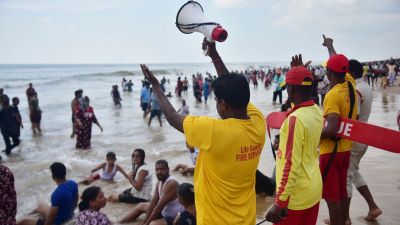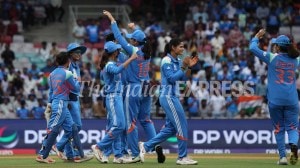Military’s, Own Country
Last month’s brutal bombings in the crowded markets of Delhi, on the eve of Diwali and Eid, raised fresh questions on the central premi...

Last month’s brutal bombings in the crowded markets of Delhi, on the eve of Diwali and Eid, raised fresh questions on the central premise of India’s two-year-old peace process with Pakistan. India’s assumption was simple: a purposeful negotiation on Jammu and Kashmir will induce the army, the dominant element of the state in Pakistan, to end cross-border terrorism and normalise bilateral ties.
India, on its part, kept the promise by launching talks on J&K. But can Pakistan keep its? Despite repeated promises from Pakistan’s President and Army Chief, Pervez Musharraf, that cross-border terrorism will come to an end or declarations that it has already ceased, violence continues unabated.
While the earthquake might have caused immense damage to the terrorist infrastructure in Pakistan Occupied Kashmir, there has been a renewal of terrorist attacks from militants based across the border.
Although India has held its peace for the moment and refused to blame Pakistan for the attacks, New Delhi is struggling to answer a number of questions. Does Musharraf and his army have the will and capacity to control the terror outfits in Pakistan? Can he be a trusted interlocutor for peace in South Asia?
If you are not looking for a “yes” or “no” answer but an informed assessment of the troubling relationship between the Pakistan army and jehadi outfits, here is a unique account from one of the brightest elements of Pakistani political class, Husain Haqqani. Unlike most recent writers on Pakistan — either western journalists or academics — Haqqani is from the innards of the Pakistani establishment. He served many prime ministers, including Benazir Bhutto and Nawaz Sharif, and is a former ambassador to Sri Lanka. Given his sharp intellect, his first hand knowledge of Pakistani politics makes him one of the most insightful analysts in the region.
Haqqani, whose columns appear in this newspaper, is now in a sort of exile in the US. His critical views on Musharraf and the army are well known. He also questions American assumptions since 9/11 that Musharraf and Pakistan’s army are part of the solution in the extended US war on terrorism.
What he offers in this important work is the solid assessment that the Pakistan army’s instrumentalisation of political Islam was not a mere tactic to achieve a set of objectives but a long term survival strategy. “Pakistan’s status as an Islamic ideological state is rooted deeply in history and is linked closely with both the praetorian ambitions of Pakistan’s military and the worldview of Pakistan’s elite,” he argues.
Haqqani challenges the widely held belief that after September 11, 2001, Musharraf, under US pressure, has put Pakistan on the course of enlightened moderation, that includes a conscious fight against Islamic extremism and a search for harmony with its neighbours, especially India
and Afghanistan.
Suggesting these hopes are misplaced, Haqqani writes: “Under military leadership, Pakistan has defined its national objective as wresting Kashmir from India and, in recent years, establishing a client regime in Afghanistan. Unless Islamabad’s objectives are redefined to focus on economic prosperity and popular participation in governance, the state will continue to turn to Islam as a national unifier.”
While the book is largely addressed at an American readership, the questions Haqqani raises are even more relevant for India. While American attention to Pakistan might be intense, it also has been episodic. But there is no way Delhi can ignore Islamabad even for a moment.
How do Haqqani’s emphases on economic modernisation and democratisation fit into India’s own framework on the peace process with Pakistan? India’s efforts in the last two years to encourage Pakistan into putting economics first yielded limited results. For all his talk on economic modernisation, Musharraf insists that settlement of Kashmir must come before trade with India.
And democratisation of Pakistan, as a political objective, has largely gone out of the Indian agenda, thanks the immediate need to deal with army
in Pakistan.
But as the problems of the current peace process reveal themselves, India will have to focus sooner than later on finding ways to reconcile its short term diplomatic interests in engaging Pakistan with the long-term challenge of transforming it.
In India, the political passions that Pakistan raises have rarely been matched by an informed discussion of its structural problems. As an accessible, thoughtful account of Pakistan’s politics, Haqqani’s volume is a must-read for anyone interested in our most important neighbour.






- 01
- 02
- 03
- 04
- 05

























